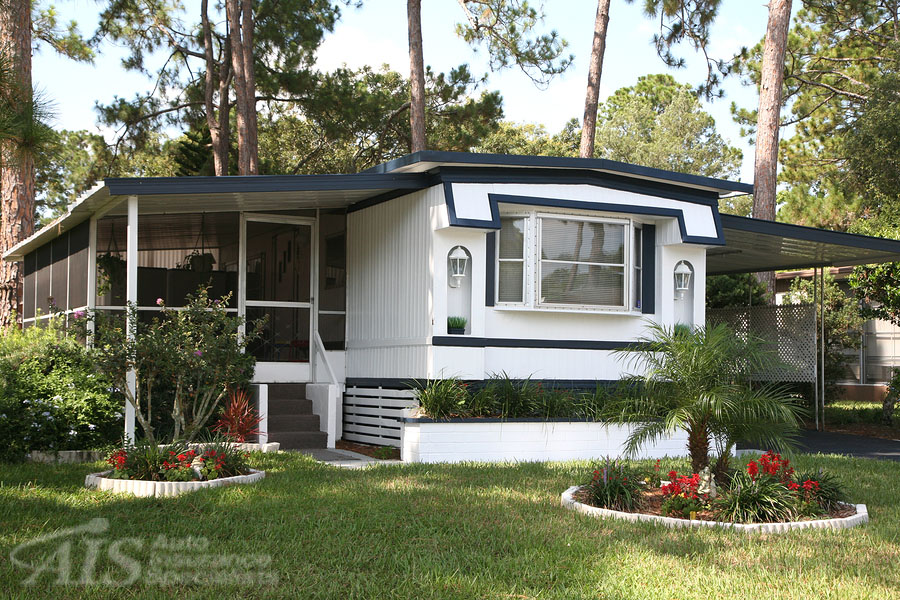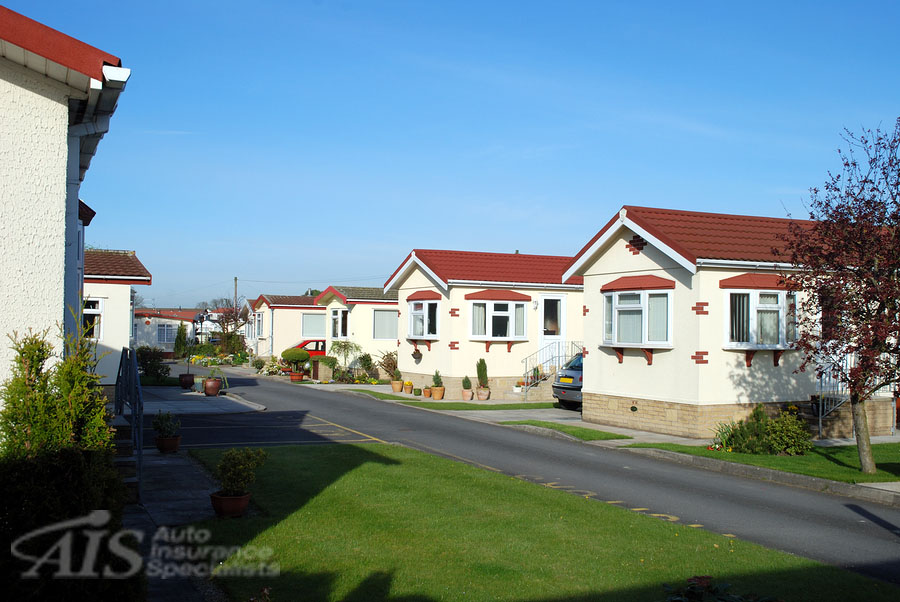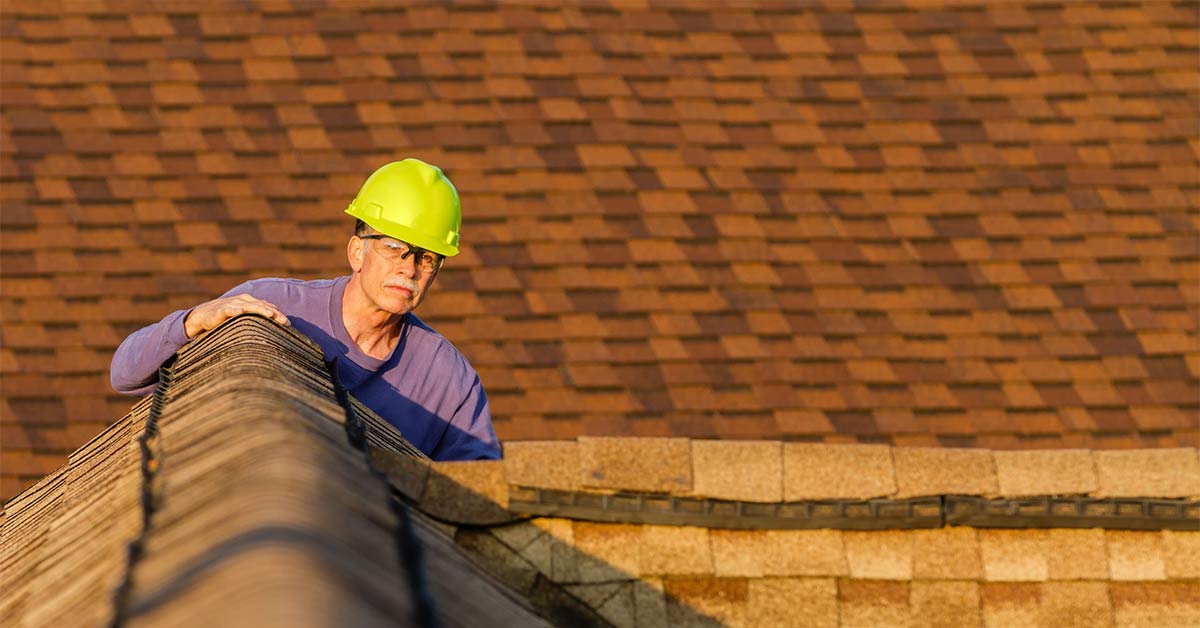You’ve landed a nice job and you’re ready to move into a place of your own. As you begin to research the cost of buying a single-family home, condo or loft, you realize that your budget will not easily accommodate this expense. After a little research, you realize what many people in this situation discover the advantages that mobile homes can offer.
Living in a mobile home can be a good solution for those who can’t afford to buy a traditional home but still want something they can call their own. Mobile homes typically cost less than traditional homes because they are prefabricated and most don’t have a foundation (although they can be attached to one). Because mobile homes typically come with a smaller price tag than other homes for sale, they can be a good solution for those just starting out or who don’t need a lot of space.
Newer mobile homes come with many amenities, including screened-in porches and open floor plans that make them a viable option for just about anyone.
Although many mobile homes will never be moved, they technically could be moved to another location if needed. Like cars, mobile homes depreciate with age, unlike traditionally built homes, which often go up in value. Although homeowners purchase the mobile home, they don’t usually own the property on which it sits and have to pay lot rent each month.
Insuring Your Mobile Home
Insuring your mobile home is different in some ways from traditional home insurance. The cost of a mobile home insurance policy may be somewhat greater than a traditional home insurance policy due to the higher risk of this type of home. Although modern mobile homes can every bit as nice-looking as any other home, the materials used are more lightweight, making mobile homes more susceptible to damage from storms, fire, and theft.
Like other types of insurance, mobile home insurance has a deductible that can vary based on the coverage you choose. Mobile home insurance includes coverage against three types of loss:
–Physical damage to your home, including fire and wind damage
–Theft of personal property
–Non-auto related legal liability coverage from negligence or accident
A named peril policy covers only the types of losses that are named in the policy, whereas a comprehensive policy covers any type of damage as long as it is sudden, accidental and the cause of the damage is not excluded from the policy. Some policies also cover medical expenses for any injuries on your property, additional living expenses, and removal expense that covers the removal of damaged property.
Optional Home Insurance Coverages
Mobile homes that might be moved to a different location need a waiver for consent to move the home and transportation collision coverage in case of any damage while traveling. Lienholder’s single interest coverage provides coverage for the holder of a loan or mortgage in the case of damage to the mobile home. Lienholder coverage must be paid by the lien holder rather than the tenant or mobile home owner.
How Much Home Insurance Coverage Is Needed?
Because mobile homes depreciate, insuring the actual cash value of the mobile home will likely not be sufficient to replace the home if complete damage occurs. Not all policies will insure for replacement cost, but those that do will have higher premiums. Most policies are for actual cash value, which means that homeowners may not be able to replace their mobile home with a new home in the event that their home is destroyed.
Other factors that should be considered are how much property you could afford to replace on your own in the case of theft or damage. If you own your home outright and have enough savings to replace it in the case it is damaged or destroyed, you may not need mobile home insurance at all. Most homeowners who are making payments on their mobile homes will need to carry mobile home insurance.

Difficulties in Insuring Mobile Homes
Because of their increased susceptibility to damage in severe weather and the fact that their value goes down as they age, insurers typically have more conditions for insuring mobile homes. Meeting these conditions shows the insurer that you are doing what you can to make your home as safe as possible and trying to avoid damage.
Using approved materials and methods to secure your mobile home to the ground is one requirement of many mobile home insurers. There may be a few mobile homeowners who secure their homes to a permanent foundation, but most want to be able to move it if they need to. Insurers may not be willing to insure a mobile home without it being secured properly to avoid being blown off its lot in a storm.
You may also be required to install smoke detectors and adequate locks in your mobile home to protect it from theft and damage. Taking reasonable safety precautions will protect you from loss of your property, which is traumatic even if you have insurance to replace your lost items.
In the Event of a Flood
Like traditional home insurance policies, most mobile home policies don’t cover floods. Separate flood insurance can be purchased, and help may be available in the form of government-sponsored insurance if the mobile home location is in a flood plain. Keep in mind that even if your mobile home isn’t located in a flood plain, it may still be susceptible to flood damage from sudden storms, depending on the location of the home and the drainage in the area.
AIS insurance can help you find the mobile home coverage you need. Get a homeowners insurance quote today.
The information in this article was obtained from various sources. This content is offered for educational purposes only and does not represent contractual agreements, nor is it intended to replace manuals or instructions provided by the manufacturer or the advice of a qualified professional. The definitions, terms and coverage in a given policy may be different than those suggested here and such policy will be governed by the language contained therein. No warranty or appropriateness for a specific purpose is expressed or implied.


